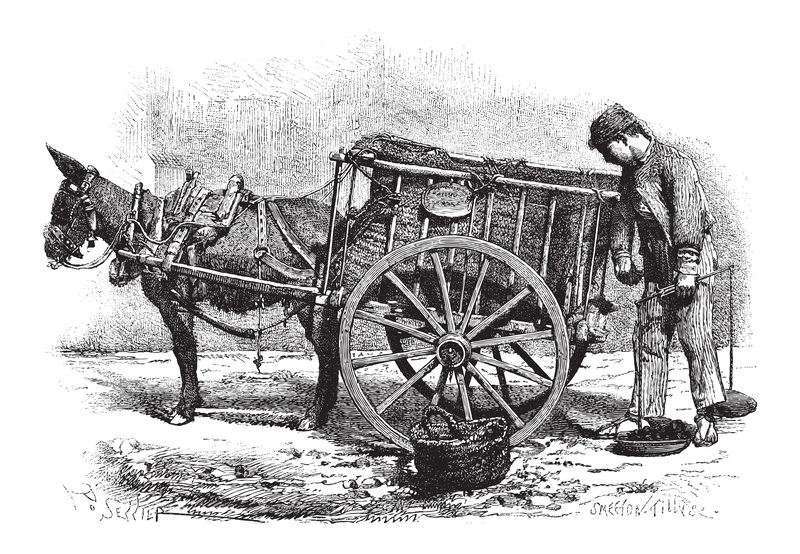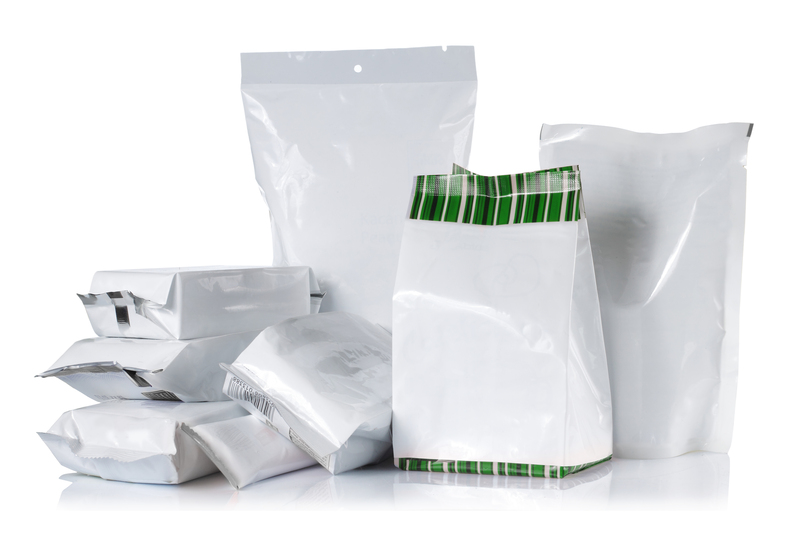Home Recycling Made Easy: Top Tips to Follow
Recycling at home has never been more important or easier. As concerns about environmental sustainability grow, more homeowners are seeking practical ways to reduce waste, conserve resources, and make a real difference--right from their own living rooms. In this comprehensive guide, we'll reveal the top tips for effective home recycling, offer expert advice, and answer some of your most common questions to ensure your recycling habits are both effortless and effective.
Why Should You Recycle at Home?
Recycling isn't just a trendy buzzword; it's a critical component for a healthier planet. By making small changes and adopting easy recycling routines, you help:
- Reduce the amount of waste sent to landfills and incinerators
- Preserve natural resources such as timber, water, and minerals
- Save energy through the use of recycled vs. virgin materials
- Support American manufacturing and conserve valuable resources
- Reduce greenhouse gas emissions associated with waste management
Every item recycled at home makes a significant difference. Understanding how to make home recycling easy is the first step toward a more sustainable future!

Top Tips for Home Recycling
1. Set Up an Efficient Recycling Station
Creating a designated recycling area keeps your home organized and encourages everyone to participate. Consider:
- Placing labeled bins for plastics, paper, glass, and metals in convenient locations
- Using color-coded containers to make separation easier for all family members
- Keeping the recycling station clean and odor-free
This streamlines the recycling process and minimizes the chances of contamination.
2. Know What You Can and Cannot Recycle
Not all plastics and paper products can be recycled. Become familiar with your local recycling program's rules by checking your municipality's website or contacting them directly. Commonly recyclable items include:
- Cardboard boxes
- Paper (newspapers, magazines, office paper)
- Plastic bottles and containers (look for #1 and #2 recycling symbols)
- Glass bottles and jars
- Metal cans (aluminum and steel)
Do not recycle: plastic bags, greasy pizza boxes, Styrofoam, and certain types of glass (like windows or mirrors) unless specifically allowed by your local facility.
3. Clean and Dry Recyclables
Contaminated recyclables can spoil entire batches and cause them to be sent to the landfill. To avoid this, always:
- Rinse food and drink containers
- Remove food residue from paper and cardboard
- Let items dry before placing them in bins
A small rinse goes a long way toward successful recycling at home!
4. Flatten Cardboard and Crush Cans
Save space in your bins and the recycling truck by flattening cardboard boxes and crushing aluminum cans. This not only makes collection more efficient but also reduces the chances of overflowing bins at your curbside.
5. Avoid Wish-Cycling
Wish-cycling is the act of tossing questionable items in the recycling bin "just in case" they're recyclable. This can lead to contamination and cost your recycling facility time and money. When in doubt, look it up or err on the side of caution and throw it away.
6. Recycle Beyond Curbside
Some items can't go in your regular home recycling bins but can still be recycled:
- Batteries
- Electronics (computers, phones)
- Plastic bags and films (drop-off at grocery stores)
- Hazardous household waste (paint, motor oil, chemicals)
Check with local recycling centers for dedicated drop-off programs for these items.
Common Variations of Home Recycling
If you find your household's recycling efforts stagnating, experiment with alternative home recycling methods:
- Composting--Turn kitchen scraps and yard waste into nutrient-rich soil
- Reusing and repurposing--Get creative with glass jars, fabric scraps, and other "waste" items
- Donating--Give old clothes, books, and electronics new life through local charities
'Reduce, Reuse, Recycle' isn't just a slogan--it's a lifestyle for sustainable living.
How to Engage Your Family in Home Recycling
Start with Education
Teach children and other household members why recycling at home is important. Use simple explanations and visuals, or turn recycling into a fun game with rewards for consistent participation.
Lead by Example
Children (and adults!) learn best by imitation. Show your commitment by recycling regularly and following the recommended guidelines.
Assign Recycling Responsibilities
- Assign different family members to different bins (plastics, paper, metals, etc.)
- Create a weekly "recycling check" routine to monitor for mistakes
- Add incentives for positive behavior, like earning a small reward for full participation in home recycling
Making home recycling easy starts with shared responsibility!
Advanced Home Recycling Tips
Label Everything Clearly
Use bold, visible labels on all your bins. This is essential for households with young children, guests, or anyone who might not be familiar with your local recycling policies. You can even add images to your labels for quick identification.
Stay Updated on Local Regulations
Recycling rules change. Each municipality may have its own list of accepted items and collection schedules. Sign up for local newsletters or download your city's recycling app to receive timely updates.
Opt for Products Made from Recycled Materials
Choose goods with packaging and labels that read "Made from Recycled Materials" whenever possible. This creates demand for recycled products and supports the circular economy.
Minimize Single-Use Products
While home recycling reduces waste, the best solution is always to reduce your consumption in the first place. Avoid unnecessary packaging, choose reusable options, and support brands that promote sustainability.
Recycling Myths Busted
- Myth: Rinsing is a waste of water.
Fact: A quick rinse prevents contamination and is far less wasteful than sending whole batches to landfill. - Myth: All plastics are recyclable.
Fact: Only certain types of plastic are accepted in most recycling programs; check labels first! - Myth: Everything sorted goes to recycling.
Fact: If items are contaminated or not properly sorted, they may end up as landfill anyway. - Myth: Recycling is too complicated.
Fact: With the right setup and education, home recycling can be easy and efficient.
Frequently Asked Questions About Home Recycling
What should I do with bottle caps and lids?
Remove bottle caps and lids from containers and check your local guidelines. Many facilities accept caps if they're recycled separately, while others ask for them to be thrown away.
Is shredded paper recyclable?
In most cases, shredded paper can be recycled but should be placed in a paper bag first. Always verify with your recycling provider.
Can I recycle pizza boxes?
Clean and dry pizza boxes are usually acceptable. However, grease-soaked portions cannot be recycled and should be composted or discarded.
Why can't glass from windows or mirrors be recycled with bottles?
These types of glass have different properties and melting points. Mixing them with container glass can ruin the recycling process.
Benefits of Easy Home Recycling
- Environmental protection: Lower greenhouse gas emissions and pollutant output
- Resource conservation: Save energy, trees, minerals, and water
- Economic savings: Cities and homeowners save money on waste disposal fees
- Community pride: Recycling efforts beautify neighborhoods and create a culture of sustainability

Eco-Friendly Alternatives to Recycling at Home
Upcycling
Upcycling is the process of turning waste materials or unwanted products into new, higher-value items. From turning old t-shirts into tote bags to repurposing glass jars as food containers, upcycling reduces waste and sparks creativity.
Composting
Composting is the ultimate organic recycling method at home. When you compost kitchen scraps and yard clippings, you divert waste from landfills and produce rich soil for gardening.
Donating and Selling
Instead of tossing items that are still useful, donate clothes, toys, and electronics to local organizations or try selling them online. This extends the lifespan of products and benefits others in your community.
Conclusion: Make Home Recycling a Habit
Home recycling made easy is all about consistency, convenience, and cooperation. By following these top tips, you not only reduce your ecological footprint but also set a powerful example for your family and neighborhood.
Remember: Recycling isn't just something you do--it's a part of who you are.
Start Today--Small Changes Lead to Big Impacts
Take a walk around your home, set up a recycling station, educate your family, and commit to simple steps. Every can, bottle, or box you recycle contributes to a healthier planet for future generations.
With these home recycling tips, it's never been easier to make a positive difference--right from your own home.